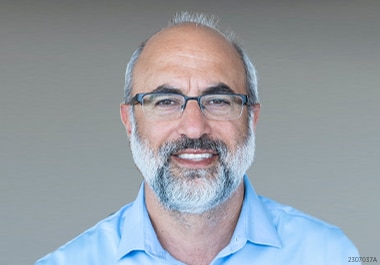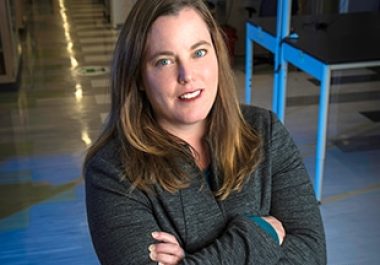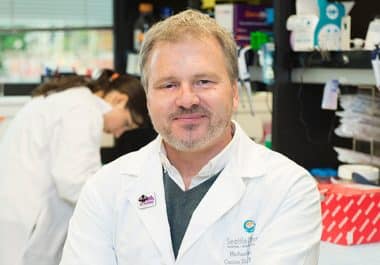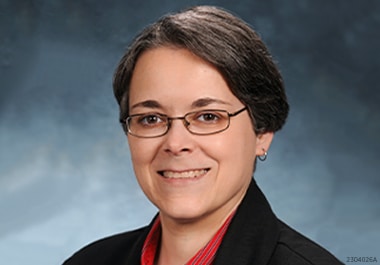
June M. Chan on Surviving Prostate Cancer: Get Up and Move
AACR grant recipient June M. Chan, ScD, has studied how diet and exercise, among other factors, contribute to progression in prostate cancer.
Since 1993, the AACR has awarded more than $540 million in grants to fund meritorious research projects across the spectrum of cancer science, including basic, translational, and clinical research. See how the AACR grants program has contributed to the AACR's mission.

AACR grant recipient June M. Chan, ScD, has studied how diet and exercise, among other factors, contribute to progression in prostate cancer.

Sara G.M. Piccirillo, PhD, was inspired to study glioblastoma whilst an undergraduate student at the National Carlo Besta Neurological Institute in her hometown of Milan, Italy. Now an assistant professor at the University of New Mexico Health Sciences Center, Dr. Piccirillo, was awarded the AACR-Novocure Tumor Treating Fields (TTFields) Research Grant in 2021 to investigate the impact of TTFields on residual glioblastoma disease.

A fellowship from the AACR enabled Jeffrey Engelman, MD, PhD, to stay in the lab and make the discoveries that launched a successful career that has spanned academic medicine, a pharmaceutical company, and a biotech startup.

Cancers use many tricks to try to defeat the therapies that are used against them. Andrea Bild, PhD, and her team are dedicated to fighting back with sophisticated methods to spot those tricks and throw cancer on the defensive.

More than 80,000 people are diagnosed in the US with bladder cancer each year. 2019 AACR Grant Recipient Joshua Meeks, MD, PhD, sought to define immune checkpoint inhibitor resistance mechanisms in bladder cancer.

As we continue our celebration of 30 years of impact of the AACR Research Grants Program, we feature the first recipient of an AACR Clinical and Translational Cancer Research Fellowship (supported by Amgen) -- 1993 AACR Research Fellow Michael Jensen, MD.

Born through an innovative partnership between the AACR and the UBS Oncology Impact Fund (OIF) managed by MPM Capital, the AACR-MPM Oncology Charitable Foundation Transformative Cancer Research Grants program aims to promote and support creative, paradigm-shifting cancer research which might not be funded through conventional channels.

Led by a fascination with Lymphoma, Chloe Steen, PhD, has dedicated her research and career to developing and employing computational methods for dissecting the tumor microenvironment of lymphoma, and other types of cancer. Here, she shares how receiving 2019 AACR-AstraZeneca Lymphoma Research Fellowship represented a key stepping stone in her career.

A growing share of US adult smokers – Hispanic/Latino adults – have been found to be less likely to receive advice to quit and use proven cessation treatments than non-Hispanic white adults. 2021 AACR-Genentech Cancer Disparities Fellow Francisco Cartujano, MD, seeks to address tobacco-related disparities in Latinos by promoting smoking cessation and physical activity using a mobile intervention.

Triple negative breast cancer (TNBC) is an aggressive cancer with high rates of p53 inactivation and lower survival rates than other breast cancer types due to increased metastasis and relapse (1). Owing to the frequent inactivation of p53, compounds that inhibit p53 from binding to its negative regulator, MDM2, are ineffective in TNBC. In a recent study published in Cancer Discovery, Dr. Eischen and her colleagues used an MDM2-targeted PROteolysis TArgeting Chimera (PROTAC) to reveal the requirement for MDM2 in p53 inactivated TNBC and identify a new therapeutic target for the disease.